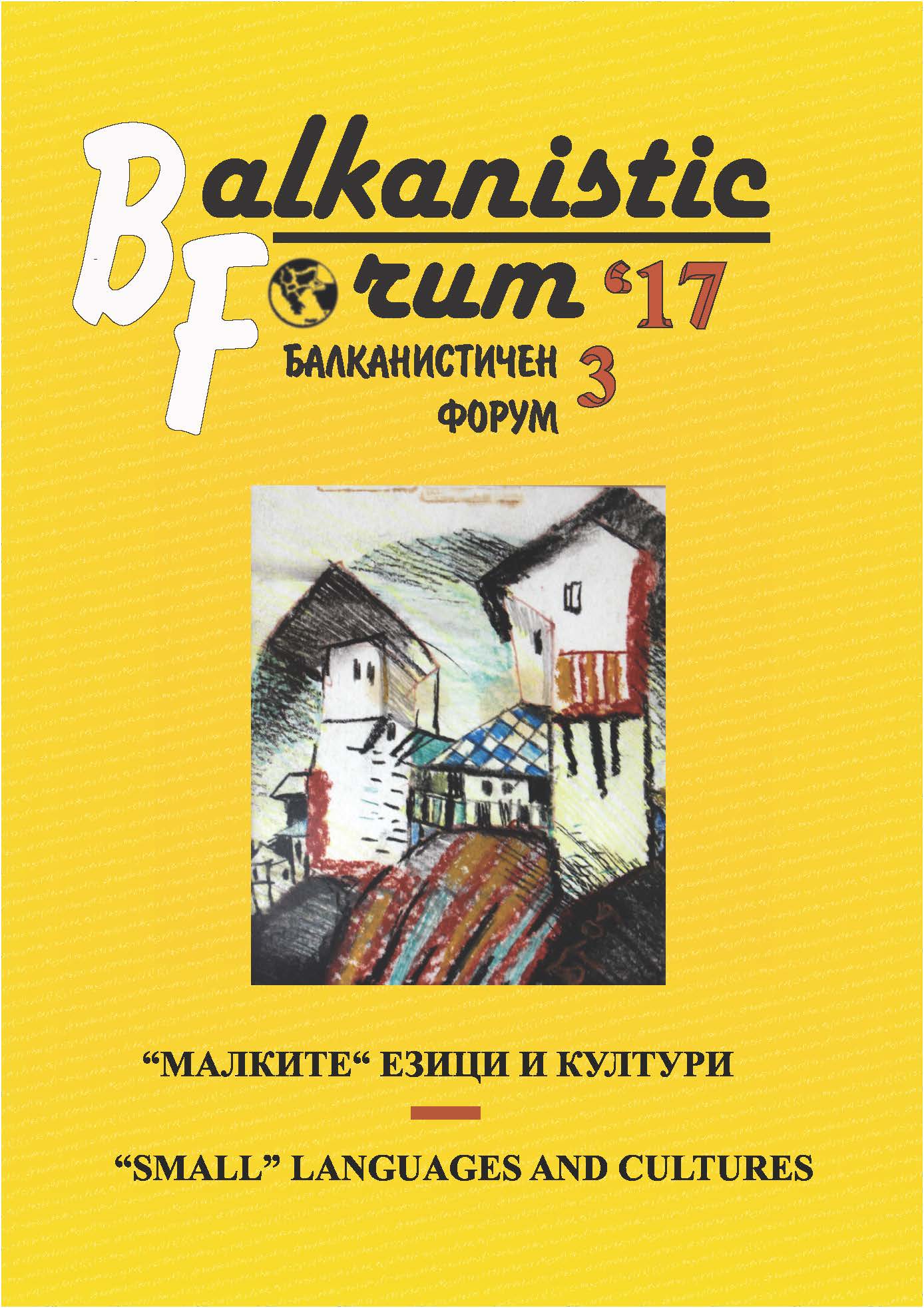Традиции старообрядцев в иноэтничном и
иноязычном окружении.
Старообрядческие поселения в Добрудже
Traditions of the Old Believers in the Foreign Ethnic and
Linguistic Environment
Author(s): Anna A. PlotnikovaSubject(s): Language and Literature Studies, Local History / Microhistory
Published by: ЮГОЗАПАДЕН УНИВЕРСИТЕТ »НЕОФИТ РИЛСКИ«
Keywords: the Old believers in the Diaspora; national tradition; language and culture; Russian dialectal vocabulary; lexicography; archaic contexts; folklore motives; ethnolinguistics
Summary/Abstract: The article is based on the material from field research conducted among Russian Old believers villages in Dobrogea, Romania from 2006 to 2013, when the author explored the traditional culture of the Russian old believers living in today’s foreign ethnic and linguistic environment. The Russian Old believers have preserved archaic linguistic features in their language and contemporary folk traditions; we can trace their roots to the South-Western part of Russia, from where the majority of the Old believers resettled in former Turkish territory in the 18th –19th centuries. Against the background of foreign language and foreign ethnic environment the Russian Old believers of Dobrogea, currently known as “Lipovans”, managed to preserve not only their language and religion, but also their traditional folk culture. It is the religious insularity of the community that facilitated, paradoxically, the preservating of these traits of everyday life and spiritual culture, which the church condemned as “sin” and “heresy”. Currently, the Old believer settlements in the Dobrogea region constitute a Russian enclave in South-Eastern Europe where a researcher is able to explore the language and folk tradition both on the diachronic and synchronic levels. In order to retrieve a historical perspective the study engages the lexical material extracted from the first Dictionary of the Russian Academy (1789–1794), that was created in the late 18th century and which incorporated wide layers of lexical data that reflected a diverse palette of that time.
Journal: Балканистичен Форум
- Issue Year: 2017
- Issue No: 3
- Page Range: 166-180
- Page Count: 15
- Language: Russian
- Content File-PDF

